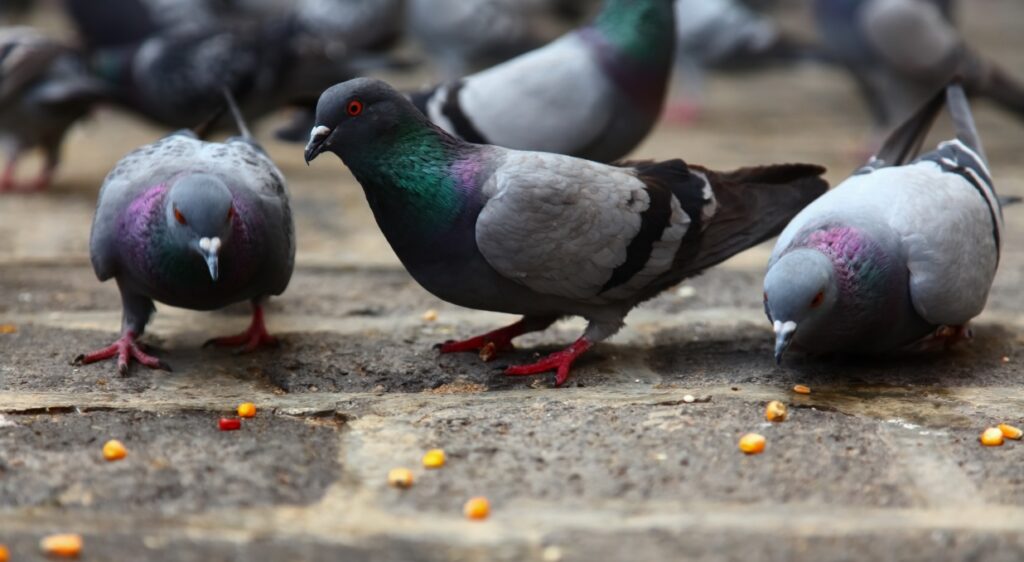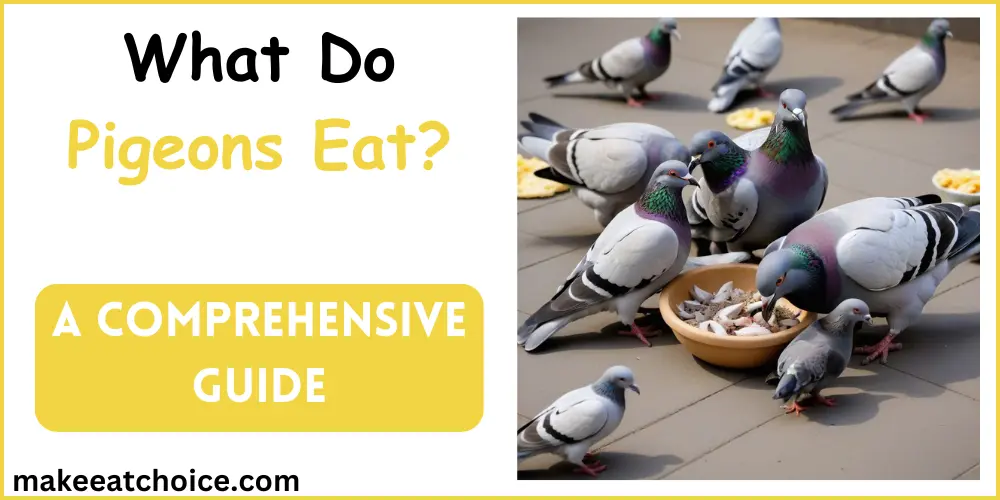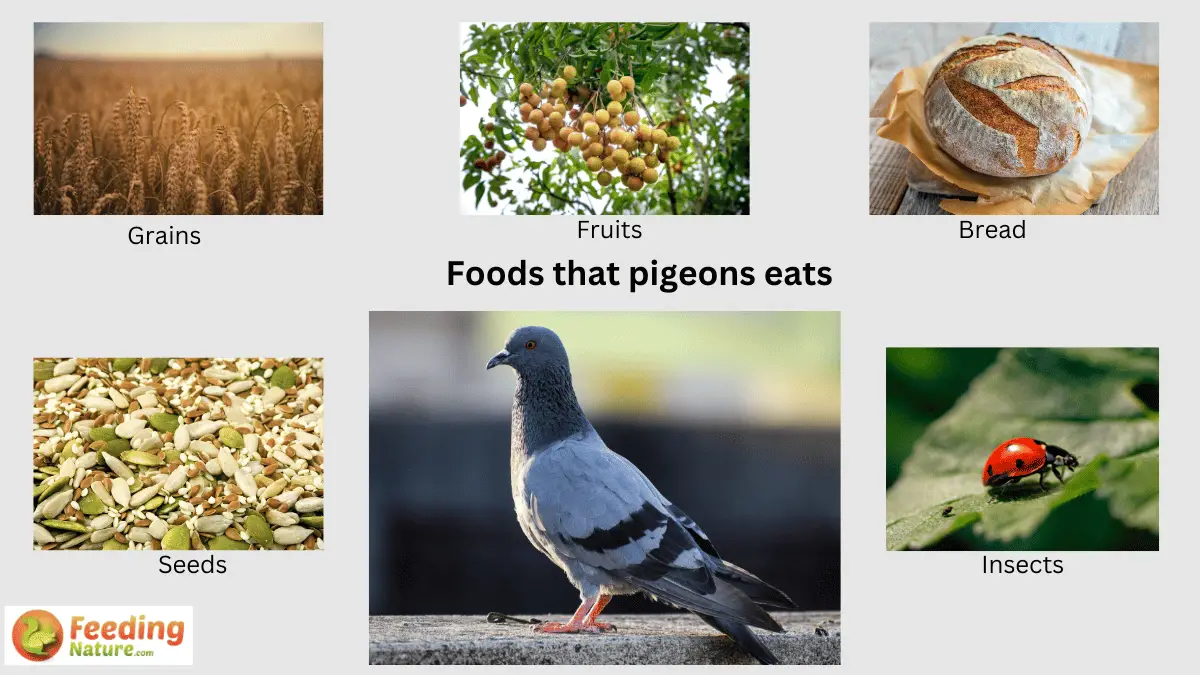The Essential Guide: What Do Pigeons Eat and Their Dietary Needs
Pigeons, those ubiquitous birds gracing cityscapes and rural landscapes alike, are often overlooked in terms of their dietary requirements. While they might seem content scavenging for scraps, understanding what pigeons eat and their specific nutritional needs is crucial for their health and well-being, whether you’re observing them in the wild or caring for them as pets. This comprehensive guide dives into the fascinating world of pigeon nutrition, providing you with the knowledge to ensure these birds thrive.
Decoding the Pigeon Diet: What Do They Naturally Consume?
Pigeons are primarily granivorous birds, meaning their natural diet consists mainly of seeds and grains. However, their opportunistic nature allows them to adapt to various food sources. In the wild, their diet is remarkably diverse and influenced by their environment and seasonal availability.
- Seeds and Grains: The cornerstone of a pigeon’s diet. This includes:
- Wheat
- Corn (Maize)
- Barley
- Millet
- Rice
- Oats
- Various wild grass seeds
- Legumes: Provide essential protein. Examples include:
- Peas
- Beans
- Lentils
- Fruits and Berries: When available, pigeons will supplement their diet with:
- Berries (e.g., elderberries, mulberries)
- Fruits (e.g., figs, grapes)
- Insects and Small Invertebrates: Though not a primary food source, pigeons may occasionally consume insects and small invertebrates, especially during breeding season when they need extra protein.
- Greenery: Some fresh green matter such as leaves and grass can be part of their diet.
The Nutritional Needs of Pigeons: A Balanced Approach
A healthy pigeon diet goes beyond simply providing food. It needs to meet specific nutritional requirements for optimal health, growth, and reproduction.
- Protein: Crucial for muscle development, feather growth, and egg production. Pigeons require approximately 15-20% protein in their diet, especially during breeding.
- Carbohydrates: Provide energy for daily activities. Primarily sourced from seeds and grains.
- Fats: Essential for energy storage and the absorption of fat-soluble vitamins. A small percentage of fat is necessary in the diet.
- Vitamins: Vitamins A, D, E, and B complex are crucial for various bodily functions. Supplementation may be necessary, especially in captive environments.
- Minerals: Calcium, phosphorus, and other minerals are vital for bone health, eggshell formation, and overall well-being. Grit (small, insoluble stones) is essential for digestion, helping the pigeon grind food in its gizzard.
Feeding Pigeons: Best Practices for Health and Happiness
Whether you’re providing food for wild pigeons or caring for pet pigeons, adopting best practices is crucial.
- Provide a Diverse Diet: Offer a mix of seeds, grains, and legumes to ensure a broad spectrum of nutrients.
- Fresh Water is Essential: Always provide clean, fresh water for drinking and bathing.
- Grit Availability: Provide a grit mix (containing oyster shell, flint, and other minerals) in a separate container. This aids digestion.
- Avoid Processed Foods: Stay away from bread, crackers, and other processed human foods, which offer little nutritional value and can lead to health problems.
- Monitor Food Intake: Observe how much food your pigeons consume and adjust accordingly to prevent overfeeding or underfeeding.
- Cleanliness is Key: Regularly clean feeding areas to prevent the spread of disease and contamination.
- Consider Supplemental Vitamins and Minerals: In captive environments, supplementing the diet with vitamins and minerals may be necessary, especially during breeding or molting seasons.
The Dangers of a Poor Pigeon Diet
A nutritionally deficient diet can lead to a variety of health problems in pigeons, including:
- Nutritional Deficiencies: Leading to weakened immune systems, poor feather quality, and developmental issues.
- Obesity: Overfeeding, particularly with high-carbohydrate foods, can lead to obesity.
- Vitamin Deficiencies: Resulting in specific health issues related to the deficient vitamin (e.g., rickets from vitamin D deficiency).
- Digestive Problems: Poor diet can disrupt the delicate balance of gut flora, leading to digestive issues.
- Reduced Lifespan: Ultimately, a poor diet can significantly shorten a pigeon’s lifespan.
Conclusion: Nourishing the Urban and Rural Flyers
Understanding what pigeons eat and their dietary requirements is essential for their health and well-being. By providing a diverse and balanced diet, you can help these fascinating birds thrive, whether they’re soaring through city skies or cooing in your backyard. Remember to prioritize natural foods, provide fresh water and grit, and observe your pigeons to ensure they are receiving the nutrients they need to live healthy and fulfilling lives. By following these guidelines, you’ll contribute to the preservation and prosperity of these often-underestimated members of our ecosystem.
Frequently Asked Questions (FAQs)
1. Can I feed pigeons bread?
While pigeons may readily eat bread, it provides little nutritional value and can fill them up without providing essential nutrients. It’s best to avoid feeding bread to pigeons.
2. What is grit, and why is it important for pigeons?
Grit is a mixture of small, insoluble stones and minerals that helps pigeons grind food in their gizzards (a part of their digestive system). This aids in digestion and the absorption of nutrients.
3. How often should I feed wild pigeons?
If you choose to feed wild pigeons, do so in moderation. Overfeeding can disrupt their natural foraging behaviors and create dependence. Providing food in the early morning or late afternoon is often a good approach.
4. What are the best seeds to feed pigeons?
A mix of seeds is ideal. Good choices include wheat, corn, barley, millet, and peas. A commercially prepared pigeon mix is often a convenient option.
5. Can pigeons eat human food scraps?
It’s generally not recommended to feed pigeons human food scraps. Many human foods lack the necessary nutritional balance for pigeons and can even be harmful.




